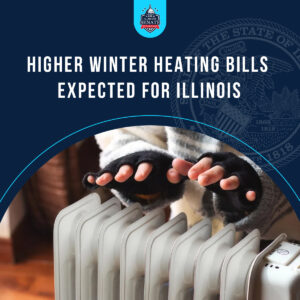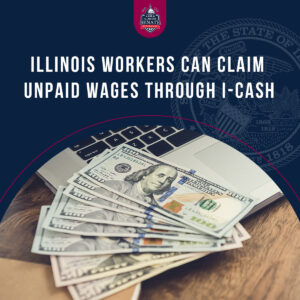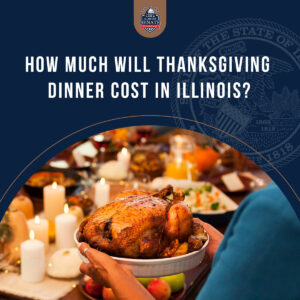Veto Session Concludes: Senate Republicans Renew Call for No New Tax Hikes

SPRINGFIELD – The second and final week of the General Assembly’s Veto Session wrapped up on Nov. 21 with few legislative items passing through either chamber.
While the Veto Session has ended, the 103rd General Assembly is expected to reconvene in early January for a “lame duck” session before the 104th General Assembly is sworn in on January 8.
Illinois faces a projected budget deficit of more than $3 billion in the next fiscal year. Republican legislators argue that this shortfall is due in part to a significant increase in state spending fueled by temporary federal funds.
Spending growth has been further fueled by the Governor’s initiatives, including programs for noncitizens, such as free healthcare, which cost Illinois taxpayers over $1 billion annually. To support these programs, the Governor recently enacted $1 billion in tax increases.
State Senator Dave Syverson (R-Cherry Valley) is urging the Governor to balance the upcoming budget without raising taxes, emphasizing that struggling Illinoisans cannot afford to cover the cost of Governor Pritzker’s self-made budget crisis.
Senator Syverson encourages residents to join the call for no new taxes by signing a petition on his Web site to make their voices heard.
Higher Heating Bills Expected for Illinois This Winter

As winter approaches, Illinois residents should prepare for higher heating bills compared to last year. The U.S. Energy Information Administration’s (EIA) annual winter energy outlook predicts rising natural gas and electricity costs, particularly in northern states and the Midwest.
Last winter’s record warmth kept energy costs relatively low. However, the EIA forecasts colder temperatures this year, driving up heating expenses. According to MoneyGeek, households in Illinois may see a $10 to $15 monthly increase in natural gas bills, depending on factors like home size and thermostat settings.
To help manage costs, residents can take steps such as sealing drafts, using programmable thermostats, and lowering the thermostat at night. Additionally, eligible households can apply for the Low Income Home Energy Assistance Program (LIHEAP), which helps low-income families cover energy bills. Applications are currently open.
Illinois Workers Can Now Claim Unpaid Wages Through I-CASH

Illinois workers now have a new way to recover unpaid wages and penalties, thanks to a collaboration between the Illinois State Treasurer’s Office and the Illinois Department of Labor (IDOL).
A recent change in state law allows IDOL to transfer unclaimed wages to the Treasurer’s Office after three years if workers cannot be located. These funds are added to the Treasurer’s Unclaimed Property Trust Fund, enabling workers to search for their money on the I-CASH website.
Wage theft investigations conducted by IDOL often take time, during which workers may move or lose contact, complicating the distribution of recovered wages. Site-wide audits can also uncover back wages owed to workers who were unaware of underpayment. The new process addresses these challenges by extending the timeframe for workers to claim their money and providing additional resources.
How Much Will Thanksgiving Dinner Cost in Illinois This Year?

Thanksgiving is a time to gather with loved ones and enjoy a festive meal, but hosting the traditional feast comes with costs that have risen significantly in recent years. While there’s good news about turkey prices, the overall expense of Thanksgiving dinner remains higher than before the pandemic.
In Illinois, the average cost of Thanksgiving dinner for 10 people is $62.84, placing the state in the mid-range of affordability nationwide, according to GOBankingRates.
Turkey, often the centerpiece of the meal, is one area where shoppers might find some relief. Thanks to increased production and fewer avian flu cases, the average price of a 16-pound turkey has dropped to $25.67 this year, down from $27.47 last year. However, other Thanksgiving staples like stuffing, sweet potatoes, and pumpkin pie mix remain higher than they were before the pandemic. According to the U.S. Department of Agriculture, overall food prices have risen 25% since 2019, with Thanksgiving food items up 19%.
For families looking to save, many retailers often offer special deals, such as budget-friendly meal packages and discounts on holiday essentials. Shoppers are also encouraged to compare store-brand options with name brands to find additional savings. However, experts caution to be mindful of “shrinkflation,” a trend where package sizes are reduced while prices remain the same, which has been noted in items like frozen peas and green beans.

